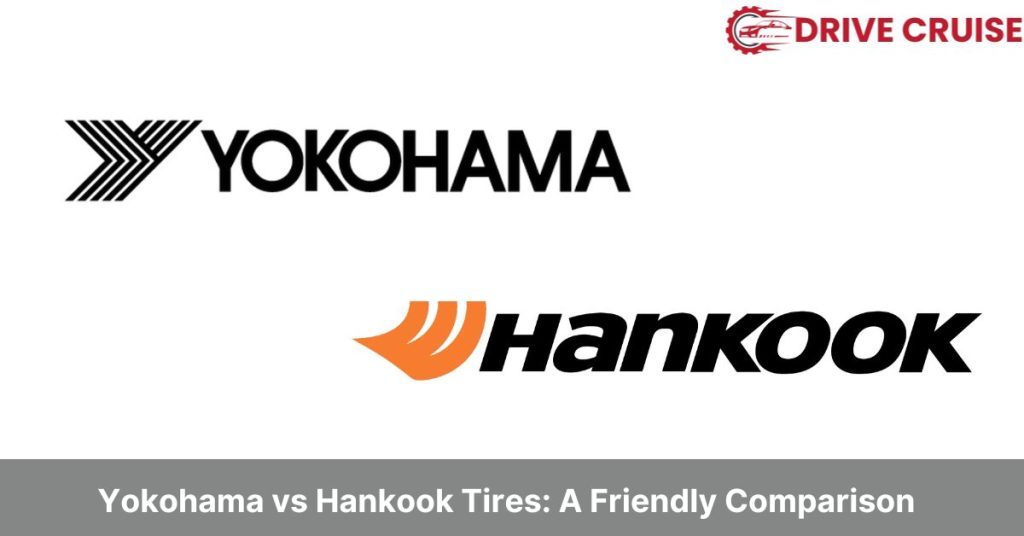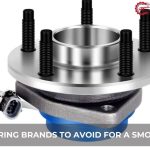When it comes to choosing the right tires for our vehicles, we’re faced with a plethora of options. Among the sea of brands, Yokohama and Hankook stand out as two of the leading contenders. Both have carved out a reputation for quality, durability, and performance, but how do they really stack up against each other? It’s a question we often find ourselves pondering as we navigate the complex world of automotive care.
Deciding between Yokohama and Hankook tires isn’t just about picking a brand; it’s about understanding what sets them apart and how those differences align with our driving needs and preferences. Whether we’re looking for the best grip on rainy days, seeking the longest-lasting tread for countless road trips, or prioritizing comfort and noise reduction, it’s crucial to dive deep into what each brand offers. So, let’s embark on this journey together, exploring the nuances that might just help us make that all-important decision for our vehicles.
Yokohama vs Hankook Tires: An Overview
Exploring the differences between Yokohama and Hankook tires, we dive into their respective advantages in the automotive world. Both brands stand out for their commitment to excellence, but they each offer unique features catering to diverse driver needs.
Yokohama, originating from Japan, prides itself on producing high-performance tires. Known for their superior grip and handling, Yokohama tires are ideal for drivers looking for an enhanced driving experience, particularly in sports or performance vehicles. They specialize in advanced compound technologies that ensure exceptional traction in both wet and dry conditions. Furthermore, Yokohama has made significant strides in eco-friendly manufacturing, developing tires that not only perform well but also minimize environmental impact.
On the other hand, Hankook, hailing from South Korea, offers a broad range of tires well-suited for everyday driving as well as high-performance applications. Hankook tires are recognized for their durability and comfortable ride, making them a great choice for long-haul drives and daily commutes. They excel in creating tires that provide a quiet, smooth ride without compromising on performance. Additionally, Hankook has invested in innovative tread designs and rubber compounds to extend tire life and improve fuel efficiency.
When comparing the two, the choice between Yokohama and Hankook tires often comes down to specific driving needs and preferences. If you prioritize eco-friendly options and superior handling in challenging conditions, Yokohama might be the brand for you. Conversely, if you value longevity, comfort, and overall performance for a range of activities, Hankook could better suit your requirements.
By weighing these aspects, you’re equipped to select tires that align with your vehicle’s demands and your personal driving style, ensuring safety, efficiency, and enjoyment on the road.
Key Features of Yokohama Tires
Continuing from our examination of Yokohama and Hankook tires, let’s dive deeper into what sets Yokohama tires apart. Yokohama tires boast several key features that cater to drivers seeking a blend of performance, safety, and environmental sustainability.
Firstly, specialized in high-performance technology, Yokohama incorporates innovative design elements like orange oil and silica in the rubber compound. This unique combination enhances grip and reduces rolling resistance, offering a superior driving experience while conserving fuel. Orange oil, in particular, ensures the rubber remains pliable across various temperatures, improving traction in both wet and dry conditions.
Secondly, Yokohama demonstrates a strong commitment to eco-friendly manufacturing processes. The company makes significant efforts to reduce carbon dioxide emissions and waste during tire production. Yokohama’s environmentally friendly approach doesn’t compromise on durability or performance, making their tires a choice for eco-conscious drivers.
Thirdly, Yokohama tires feature advanced siping and tread designs that contribute to remarkable handling and stability. These designs optimize water evacuation, significantly reducing the risk of hydroplaning. Whether navigating tight turns or braking suddenly, drivers can trust Yokohama tires to maintain excellent road contact.
Lastly, Yokohama’s product range includes tires constructed specifically for different driving conditions and vehicle types. Whether it’s a passenger car, an SUV, or a high-performance sports car, Yokohama offers tailored options that enhance each vehicle’s handling characteristics and performance.
In comparing Yokohama to Hankook tires, it’s evident that Yokohama focuses heavily on performance, innovation, and eco-friendliness. Offering a dynamic driving experience without sacrificing environmental sustainability, Yokohama tires are designed for drivers who value both agility on the road and a green approach to tire manufacturing.
Key Features of Hankook Tires
Following our exploration of Yokohama’s innovative and eco-conscious tire solutions, let’s turn our attention to what Hankook brings to the table. Hankook Tires stands out for its emphasis on delivering not just durability and comfort but also incorporating technology that enhances the driving experience for various vehicle types.
Firstly, Hankook’s advanced rubber compounds are central to their tires’ performance. These compounds ensure longevity and fuel efficiency, allowing drivers to cover more miles with less fuel consumption. This aspect aligns with drivers’ needs for economical yet high-performance tires.
Secondly, Hankook invests in tire technology that prioritizes safety in varied driving conditions. Features like high grip tread patterns and reinforced sidewalls contribute to reliable handling and stability, whether navigating wet roads or taking on sharp turns. This safety commitment ensures drivers’ peace of mind.
Moreover, Hankook’s noise reduction technology stands out. Through innovative tread pattern designs, Hankook tires offer a quieter ride, minimizing road noise for a more comfortable driving experience. This feature is particularly appreciated by families and long-distance drivers who value a peaceful journey.
Finally, the versatility of Hankook’s product line is worth noting. Offering tires for passenger cars, SUVs, trucks, and even high-performance vehicles, Hankook ensures that no matter the vehicle, drivers have access to top-tier tire technology. Each tire model is designed to meet specific driving demands, from urban commuting to off-road adventures, showcasing Hankook’s dedication to catering to diverse driver needs.
Transitioning from Yokohama’s eco-friendly and performance-centric approach, Hankook’s focus on durability, safety, and comfort complements the tire industry by providing drivers with a broad spectrum of quality tire options. By emphasizing advanced materials, safety features, noise reduction, and a wide range of tires, Hankook positions itself as a go-to choice for drivers prioritizing longevity and comfort alongside performance.
Pros and Cons
Exploring the pros and cons of Yokohama and Hankook tires offers insight into their suitability for different drivers’ needs. Let’s dive into what sets these brands apart.
Yokohama Tires
- Pros:
- High Performance: Yokohama tires provide excellent grip and handling, enhancing the driving experience, especially in high-speed scenarios.
- Eco-Friendly: These tires are made with eco-friendly processes and materials, reflecting a commitment to reducing environmental impact.
- Innovative Design: Advanced siping and tread designs contribute to superior fuel efficiency and grip on wet and dry roads.
- Cons:
- Price: Yokohama tires tend to be on the pricier side, reflecting their premium performance and technology.
- Limited Options for Heavy-Duty Vehicles: While there’s a wide range for passenger cars, options for heavy-duty vehicles are more limited.
Hankook Tires
- Pros:
- Durability: Hankook tires are known for their durability, ensuring a longer lifespan and better value over time.
- Comfort: These tires often feature noise reduction technology, providing a quieter and more comfortable ride.
- Versatility: A broad product line caters to a wide range of vehicles, from economy cars to SUVs, matching diverse driving demands.
- Performance in Extreme Conditions: While generally reliable, some users report that Hankook tires may not perform as well in extreme weather conditions as some competitors.
- Premium Lines Can Be Pricey: Although Hankook offers value-focused options, their premium lines can approach higher price points similar to competitors like Yokohama.
Considering these pros and cons allows us to appreciate the distinct advantages Yokohama and Hankook tires offer. Whether prioritizing performance and eco-friendliness or durability and comfort influences the choice, each brand brings strong merits to the table.
Customer Feedback and Testimonials
Moving from the detailed comparison between Yokohama and Hankook tires, it’s essential for us to delve into what drivers actually say about these brands. Gathering insights from various customer feedback and testimonials, we aim to shed light on the real-world performance of both tire brands.
Yokohama Tires Feedback
Drivers often commend Yokohama tires for their exceptional handling and stability on both dry and wet surfaces. Many reviews highlight the brand’s AVID series, especially praising the superior grip and fuel efficiency they offer. Environmental enthusiasts appreciate Yokohama’s commitment to eco-friendly manufacturing, citing it as a decisive factor in their purchase. However, some feedback mentions the premium price tag of Yokohama tires as a drawback, though users frequently note that the performance and eco-conscious production justify the investment.
Hankook Tires Feedback
Hankook tires receive accolades for their durability and comfort over long distances. Reviews of the Kinergy and Ventus lines emphasize their smooth ride and noise reduction technology, making lengthy commutes more pleasant. Customers also value the versatility of Hankook’s product range, suitable for various vehicles and driving conditions. Nonetheless, there are occasional reports of performance dips in extreme weather conditions. Despite this, the general consensus remains positive, with many highlighting the excellent value Hankook tires present, considering their balance between cost and quality.
In gathering feedback from diverse sources, it’s clear that both Yokohama and Hankook tires have cultivated loyal followings. Drivers’ preferences seem to align closely with the brands’ distinct focuses—Yokohama for those seeking high performance and eco-friendliness, and Hankook for those prioritizing durability and comfort. This direct customer input complements our comparative analysis, providing a clearer understanding of how each brand stands up to the rigors of daily driving.
Expert Recommendations and Ratings
In our analysis of expert opinions and tire ratings, we’ve distilled valuable insights to guide you in choosing between Yokohama and Hankook tires. Our findings are based on rigorous testing, industry benchmarks, and direct comparisons by tire professionals.
Yokohama Tires
Experts commend Yokohama for its cutting-edge technology and sustainable manufacturing processes. Ratings often highlight:
- Performance: Yokohama tires receive high marks for superior grip and handling, particularly in wet conditions. Models like the Advan series stand out for their responsiveness and precision at high speeds.
- Innovation: The brand’s commitment to eco-friendly practices, such as using orange oil to reduce petroleum content in their tires, garners praise.
- Product Range: Yokohama’s extensive selection caters to a wide array of vehicles, from passenger cars to trucks, with each line offering unique benefits tailored to specific driving scenarios.
Hankook Tires
Hankook is lauded for its blend of technology, value, and performance. Key points from expert reviews include:
- Durability: Hankook’s advanced rubber compounds contribute to longer tread life, earning positive remarks for the overall longevity of their tires.
- Comfort: Reviewers often note the comfort and noise reduction afforded by Hankook tires, making them a favorite for everyday driving.
- Versatility: With a robust lineup that includes options for all seasons and various driving conditions, Hankook tires are recognized for their adaptability and performance across different environments.
In side-by-side comparisons, both brands excel in their niches. Yokohama is the go-to for drivers prioritizing top-tier performance and environmental consciousness, while Hankook is preferred for those valuing durability, comfort, and cost-effectiveness. Ultimately, the choice between Yokohama and Hankook depends on your specific needs and values as a driver, but rest assured, both brands boast offerings that stand out in the crowded marketplace of tires.
Conclusion
We’ve delved deep into the worlds of Yokohama and Hankook tires, uncovering their unique strengths. Yokohama shines with its innovative, eco-friendly approach and superior performance, perfect for those of us who prioritize cutting-edge technology and a greener footprint. On the other hand, Hankook stands out for its exceptional durability and comfort, making it a go-to for drivers seeking a reliable, cost-effective option for various driving conditions. Ultimately, the choice boils down to what we value most in our driving experience—whether it’s the thrill of performance or the assurance of longevity and comfort. Both brands offer compelling reasons to choose them, making our decision a matter of personal preference and driving needs.
Related Posts:
- Continental ExtremeContact DWS06 Plus Review: A Friendly Guide to the Top All-Season Tire
- Continental ExtremeContact Sport vs Michelin Pilot Sport 4S: A Friendly Comparison
- Goodyear Vector 4Seasons Gen 3 Review: All-Season Tires for Year-Round Performance
- Michelin Pilot Sport All Season 4 vs Cross Climate 2: Which One Is Better?
- Nankang Tires Review: Are They Worth the Investment?
- Nitto NT05 Review: A Friendly Look at Performance and Handling
- Nitto vs Michelin Tires: Which One is the Best for Your Car?
- Yokohama Advan Apex V601 vs Michelin Pilot Sport 4S: A Friendly Comparison
- Yokohama vs Hankook Tires: A Friendly Comparison
































